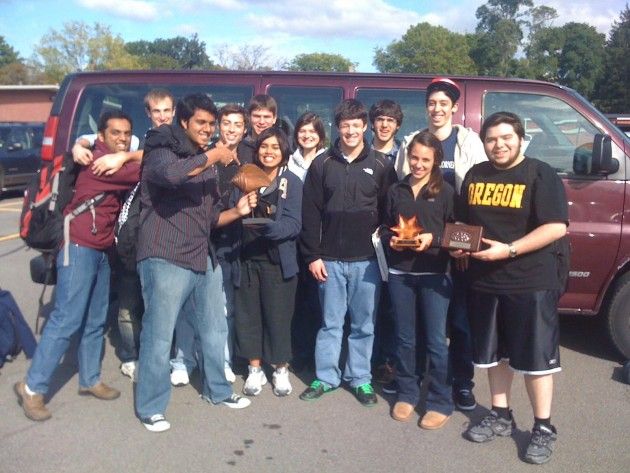Debate Team Ranked 13th in the World
For the Colgate University Debate Society, this past winter break marked one of their most exciting and rewarding tournaments. From December 27 to January 4, Colgate’s Society traveled to Botswana to compete in the World University Debate Championships (WUDC).
The WUDC is an annual competition hosted by a different country each year. Hundreds of teams from institutions all over the world compete over a series of rounds of debates to Conine who moves on to the octofinals, quarterfinals, semis and finals. These most competitive and highly prestigious rounds are known as “break rounds.” This year Colgate finished the British Parliamentary style tournament only a few points shy from the “break” and ranked holistically in thirteenth place with 264 points, a technical tie for twelfth with Melbourne (Australia).
Lucky thirteenth place is an incredible accomplishment for the Society, who placed sixteenth at the WUDC last year in Turkey. The WUDC is rigorous and requires vast global knowledge. President of the Colgate Debate Society Margaret Bower said, “we are left to our own wit,” even though the debaters spend weeks reading the news and training. Debaters are given only 15 minutes after the topic is introduced to prepare their position. This is because the WUDC is designed so that debaters are challenged to be well rounded, knowledgeable and at the top of their game.
Each round involves four teams of two people, with two teams arguing for and the other two arguing against a motion. The motion selected can come from a mass array of different issues including, but not limited to, the economy, education, international and local policy. Every year at the WUDC, one motion deals with the local issues of the area in which the competition takes place. This year, the motion that the Colgate Debate Society was required to debate regarded the belief that the South African Development Community (SADC), a 20-year-old organization of fifteen African states, should pursue a political union. Brower admitted that she learned about the depth of the organization during the debate itself. Because of the chance the championship gives its competitors to explore the location of the competition, however, the next day she and the rest of the society visited the buildings that house the operation of the SADC.
Brower never gets tired of the incredible experiences the WUDC offers. “You hear perspectives you would never imagine and you have to debate against them.”
The Colgate University Debate Society is one of the oldest clubs on campus, founded in 1960. As Sophomore and Vice President Lucas Luttmann said, “A lot of people preceding us have worked very hard to make the team what it is.” Behind that statement, however, is the fact that, with the support of their advisor, and Coordinator of the Colgate Speaking Union John Adams, the club is entirely student-run, and a major success. They are now ranked thirteenth in the world and third in the nation. They will compete again for the national title in April. During the last weekend in March the Colgate University Debate Society is hosting their own second annual tournament. With funding from President Herbst, Dean Johnson and an anonymous donor, the Debate Society has reached new heights.
“The traveling that we get to do is really just amazing, we literally get to go to Botswana, England, other places at virtually no cost,” Luttmann said.
The expansion and achievement of the debate society is incredible, but for members like Margaret Brower the real growth is in the strength and ability of their teammates. She loves watching newer debaters, like the two first-years that the society brought to WUDC this past year, “molding together” skills they learn from others and their own individual strength at the competition.







